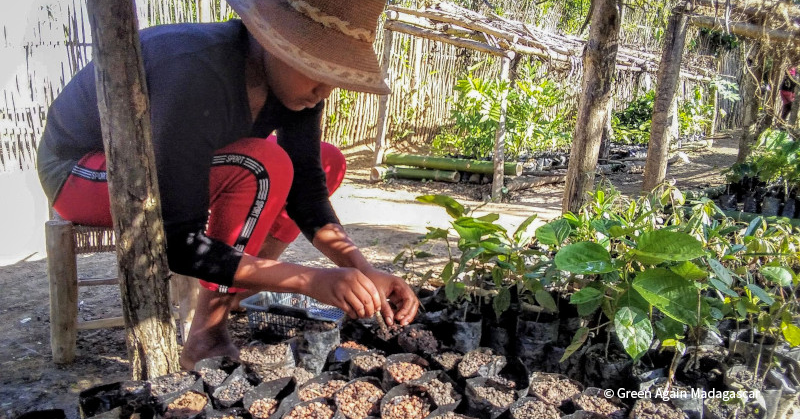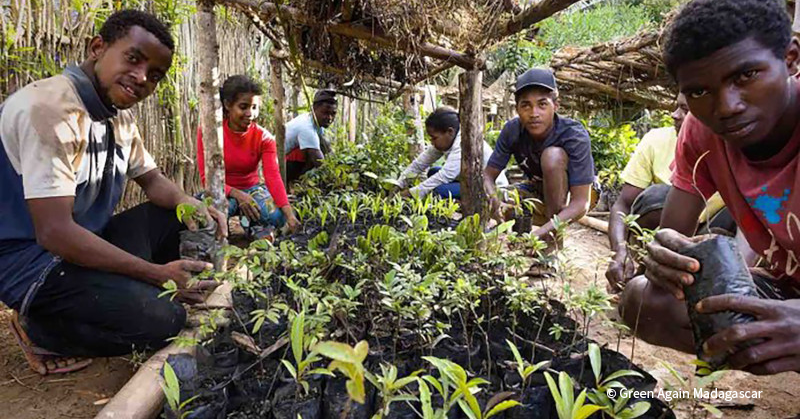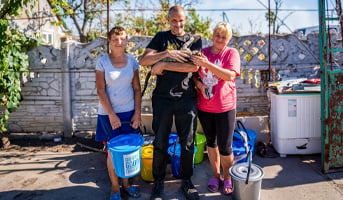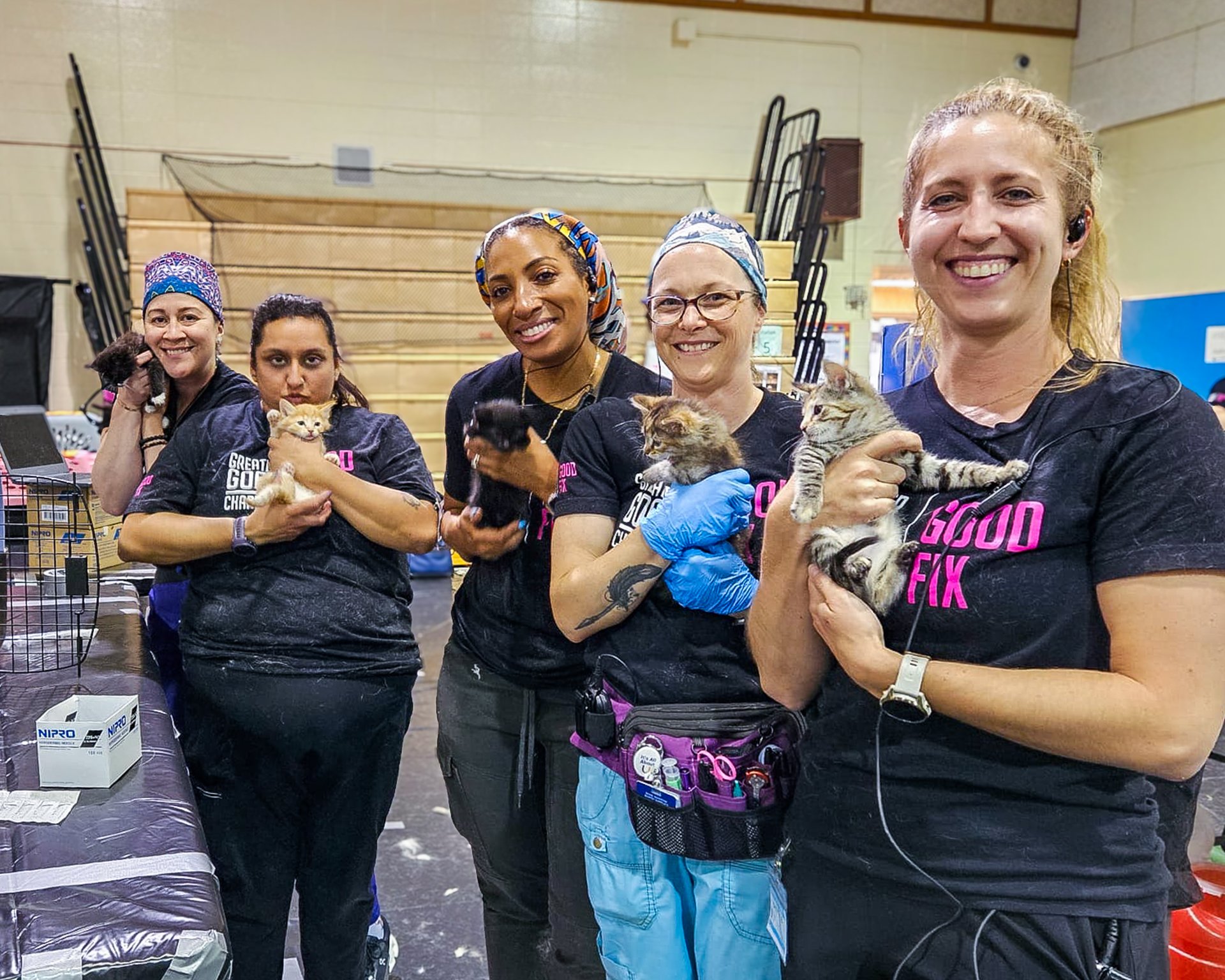Madagascar Reforestation Project Empowers Local Workers and Saves Wildlife
Madagascar has lost 87% of its original rainforest in just the last century. Only 11% remains—and with it, the survival of hundreds of species found nowhere else on Earth is at stake.
This level of biodiversity loss threatens not only wildlife like endangered lemurs but also the livelihoods of local communities who rely on healthy forests for food, water, and stability. Reversing this trend requires a long-term, people-led solution. That’s why Greater Good Charities partnered with North Florida Wildlife Center, who was collaborating with Green Again Madagascar, to support sustainable reforestation and community-based conservation.

Thanks to a recent grant, this partnership helped keep Malagasy crews employed in critical habitat restoration efforts while also ensuring continued care for rescued wildlife at the North Florida Wildlife Center.
Local Jobs, Lasting Impact in Madagascar
In the village of Tanambao, a team of Malagasy workers continued reforesting degraded land through October and November. This grant ensured steady income for the crew—at a time when jobs in rural Madagascar are scarce—and helped advance ecological studies and habitat restoration.





Green Again Madagascar’s approach centers community involvement. Malagasy residents are not just planting trees; they’re leading a long-term effort to restore primary forest, support biodiversity, and improve the land for future generations. This collaborative model improves livelihoods while rebuilding what’s been lost—one seedling at a time.
 At Green Again’s nursery in Maevatanana, co-founder Catherine Sangotra Hill and her sister prepared and planted native species—laying the groundwork for sustainable forest management rooted in local leadership.
At Green Again’s nursery in Maevatanana, co-founder Catherine Sangotra Hill and her sister prepared and planted native species—laying the groundwork for sustainable forest management rooted in local leadership.
Wildlife Care Continues in Florida
Back in the U.S., the same grant helped the North Florida Wildlife Center provide continued care for dozens of rescued and non-releasable animals, including Cypress, a gray fox who now calls the Center home. Animals like Cypress—often victims of injury or the illegal pet trade—would have few options without sanctuaries like this one.

The Center also cares for several endangered species, including three ring-tailed lemurs born to rescued parents. These lemurs, once part of the pet trade, now live in a naturalistic habitat where they climb, forage, and raise young as they would in the wild.
Thanks to donor support and the expanded habitat funded after the most recent birth, guests can now observe these animals behaving as they would in Madagascar. These educational experiences have helped raise awareness and additional funds—ultimately supporting more tree planting in the lemurs’ native habitat.
Lemurs as Ambassadors for Conservation
In March 2024, a ring-tailed lemur pup was born at the Wildlife Center. Its parents, Felana and Maharo—both rescued from the illegal pet trade—are part of a breeding group that serves as a living reminder of what’s at stake in the wild.

The lemurs' expanded habitat at the Center allows guests to observe them climbing, foraging, and interacting in naturalistic ways. These encounters help guests make the connection between animals in care and the forests being restored in Madagascar. The result? More awareness, more donations for tree planting, and deeper understanding of why species like lemurs should never be pets.
One Mission, Two Continents
In 2024 alone, this partnership has:
- Planted thousands of trees in Madagascar
- Kept a dozen Malagasy workers employed in restoration work
- Funded care for dozens of rescued wildlife in Florida
- Educated thousands of visitors on the connection between animal welfare and habitat protection
Together with our partners, we see what global conservation can look like when it’s rooted in local communities, powered by collaboration, and focused on both people and animals.
Support That Reaches Across Continents
From the forests of Madagascar to the sanctuaries of Florida, your support powers work that protects wildlife and uplifts communities. These aren’t short-term solutions—they’re long-term investments in the health of our planet and the people who share it.
Donate now to support reforestation, wildlife care, and community-led conservation.


